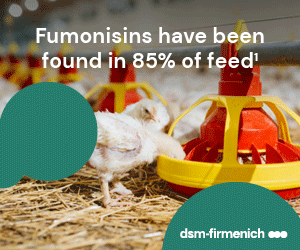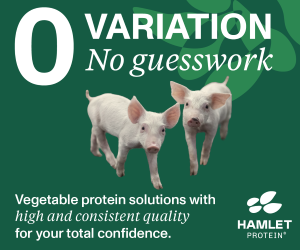



New Technology in Biomass Conversion to Crude Oil
US - Researchers at the University of Illinois are preparing to develop an educational and research facility that will be used to demonstrate the process of converting swine manure and algae into crude oil.Lance Schideman, a professor in the Department of Agricultural and Biological Engineering (ABE) at Illinois, has done significant research in the area of integrated algae systems for water purification and biomass production. Yuanhui Zhang, also a professor in ABE, has spent almost a decade researching the conversion of swine manure into crude oil. Now they have combined their efforts to develop a system that will use biowastes such as swine manure to grow algal biomass, purify wastewater, recycle nutrients, capture carbon dioxide and produce biofuels.
"With this system, we will first convert swine manure into crude oil in a hydrothermal liquefaction (HTL) reactor," Professor Schideman said. "The resultant wastewater contains nutrients, such as nitrogen and phosphorus, which can be used to grow algae. These fast-growing algae will remove the excess nutrients and capture carbon dioxide. Finally, the algae will be fed back into the HTL reactor to be converted into additional biocrude oil." Schideman said that the first stage of the project should allow them to produce up to two gallons of crude oil per day, using manure and algae grown on site. A second phase is also being planned that will produce up to two barrels of oil per day.
Professor Schideman said that while they have shown that all parts of this process are viable, "we haven't brought them together in one continuous process, so that's the main goal of the current project."
The facility will be located at the Swine Research Center (SRC) on the U of I South Farms, and developed in collaboration with the Department of Animal Sciences. "They have about 3,000 pigs at the SRC, and right now the manure lagoon is currently discharged to the local sanitary sewer at significant expense," said Professor Schideman. "One immediate benefit for them would be a substantial reduction in their sewer bill, but hopefully, the longer term benefit would be value-added co-products from their residuals management system."
Professor Zhang said the research theme is called Environment-Enhancing Energy, or E² Energy, because it is an effort to meet the challenge of energy production in a way that is both economically viable and environmentally sustainable.
"This synergistic process is extremely advantageous," Professor Zhang said, "because it brings together two rivals, energy production and environmental protection, to complement rather than compete with one another."
Ultimately, Professor Schideman said they hope the laboratory at the SRC will become a cutting-edge facility for applied research and education on novel processes that convert agricultural residuals into valuable bioenergy and biochemical resources, while also providing significant environmental benefits. "Right now we are developing strategic partnerships with stakeholders including producers, equipment manufacturers, academics, extension specialists and co-product end users, to maximise the impact of this new research and extension facility," said Professor Schideman.
Professor Schideman and Professor Zhang are co-PIs on a grant sponsored by the Illinois Sustainable Technology Center for characterizing water quality impacts of algal wastewater treatment combined with hydrothermal liquefaction. Additionally, Professor Schideman has received a Focal Point grant from the UIUC graduate college for building interdisciplinary research capabilities in algal biomass and bio-products.
















